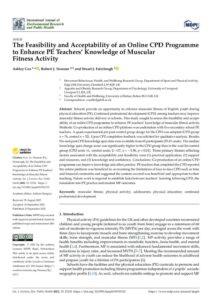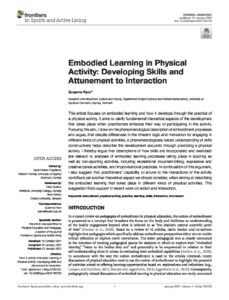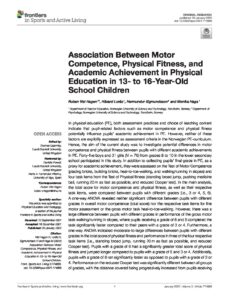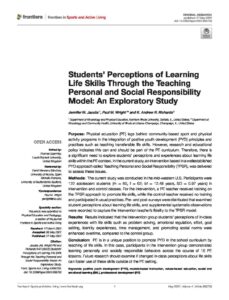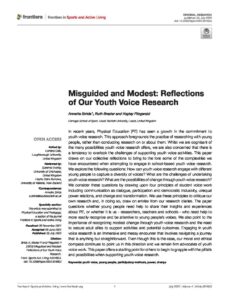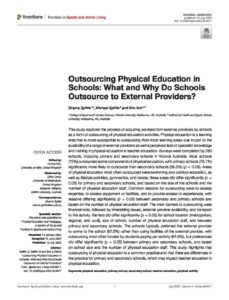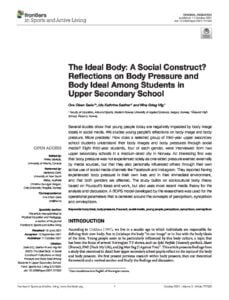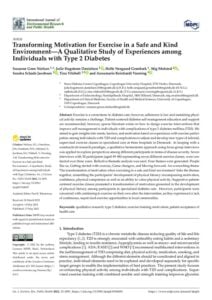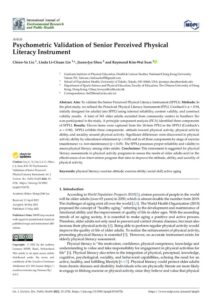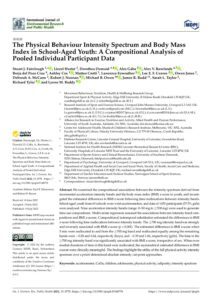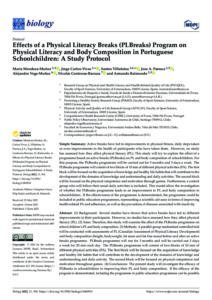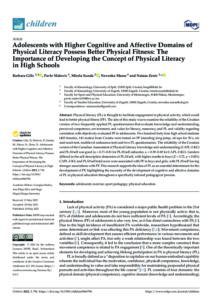-
The Feasibility and Acceptability of an Online CPD Programme to Enhance PE Teachers’ Knowledge of Muscular Fitness Activity
Abstract Schools provide an opportunity to enhance muscular fitness of English youth during physical education (PE). Continued professional development (CPD) among teachers may improve muscular… -
Embodied Learning in Physical Activity: Developing Skills and Atunement to Interaction
Abstract This article focuses on embodied learning and how it develops through the practice of a physical activity. It aims to clarify fundamental theoretical aspects… -
Association Between Motor Competence, Physical Fitness, and Academic Achievement in Physical Education in 13- to 16-Year-Old School Children
Abstract In physical education (PE), both assessment practices and choice of teaching content indicate that pupil-related factors such as motor competence and physical fitness potentially… -
Students’ Perceptions of Learning Life Skills Through the Teaching Personal and Social Responsibility Model: An Exploratory Study
Purpose Physical education (PE) lags behind community-based sport and physical activity programs in the integration of positive youth development (PYD) principles and practices such as… -
Misguided and Modest: Reflections of Our Youth Voice Research
Abstract In recent years, Physical Education (PE) has seen a growth in the commitment to youth voice research. This approach foregrounds the practice of researching… -
Outsourcing Physical Education in Schools: What and Why Do Schools Outsource to External Providers?
This study explored the process of acquiring services from external providers by schools as a form of outsourcing of physical education activities. Physical education is… -
The Ideal Body: A Social Construct? Reflections on Body Pressure and Body Ideal Among Students in Upper Secondary School
Abstract Several studies show that young people today are negatively impacted by body image ideals in social media. We studies young people’s reflections on body… -
Transforming Motivation for Exercise in a Safe and Kind Environment
Abstract – Transforming Motivation for Exercise in a Safe and Kind Environment – A Qualitative Study of Experiences among Individuals with Type 2 Diabetes Exercise… -
Psychometric Validation of Senior Perceived Physical Literacy Instrument
Abstract Aim: To validate the Senior Perceived Physical Literacy Instrument (SPPLI). Methods: In the pilot study, we refined the Perceived Physical Literacy Instrument (PPLI, Cronbach’s α =… -
The Physical Behaviour Intensity Spectrum and Body Mass Index in School-Aged Youth: A Compositional Analysis of Pooled Individual Participant Data
Abstract We examined the compositional associations between the intensity spectrum derived from incremental acceleration intensity bands and the body mass index (BMI) z-score in youth,… -
Effects of a Physical Literacy Breaks (PLBreaks) Program on Physical Literacy and Body Composition in Portuguese Schoolchildren: A Study Protocol
Abstract Active breaks have led to improvements in physical fitness, daily steps taken or even improvements in the health of participants who have taken them.… -
Adolescents with Higher Cognitive and Affective Domains of Physical Literacy Possess Better Physical Fitness: The Importance of Developing the Concept of Physical Literacy in High Schools
Abstract Physical literacy (PL) is thought to facilitate engagement in physical activity, which could lead to better physical fitness (PF). The aim of this study…


